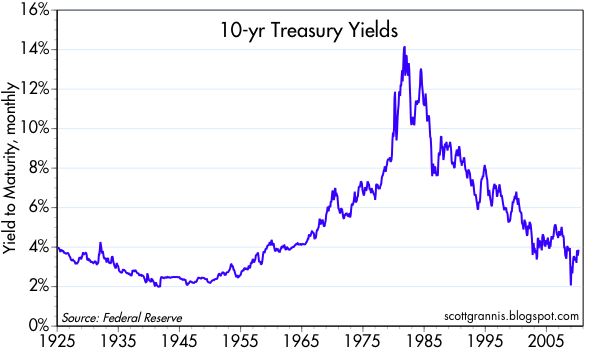Look at this chart comparing Debt to NGDP...
It's pretty obvious that had NGDP been allowed to continue its trend growth, the US government debt burden would be significantly lower. Of course, raising NGDP by unexpectedly inflating is always an option (and always a bad one), but we are talking about continuing a trend that was the implicit goal of the Fed for the previous 20 years!
And remember, Lower NGDP resulted in lower real GDP as well. This increased government debt burden far beyond what the decline in NGDP relative to debt implies. Had NGDP continued to grow at trend, its reasonable to assume public debt would be closer to $7.6 trillion than $9.6 trillion.
Assuming NGDP stayed on trend (but debt still rose to $9.6 trillion), Debt/GDP would be 56% rather than 64%. Under a more plausible scenario, debt would have grown more slowly had NGDP stayed on trend and Debt/GDP would be even lower at ~44%.
Obviously entitlements are the biggest problem in the long run, and I think S&P was incorrect in downgrading the credit rating of the US, but this recession has still needlessly and dramatically increased our debt burden. Any true deficit hawk should be screaming for easier monetary policy.




